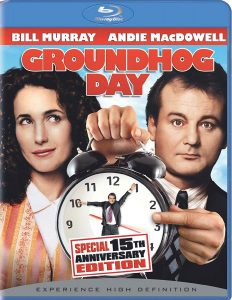Leigh Whannell was a writer before he was a director, but “The Invisible Man” shows off his directorial skills more than his screenplay-penning talent. This third entry in what was originally intended to be a “Dark Universe” but is now just standalone films (“Dracula Untold” and 2017’s “The Mummy” were the first two) has the requisite moments of Cecelia Kass (Elisabeth Moss) being terrified of an invisible man in the room with her. That’s timeless monster-movie stuff.
Cleverly budget conscious
It’s also cleverly budget conscious. Moss, a star from TV’s “Mad Men” and “The Handmaid’s Tale,” carries the film with her makeup-free expressions of fear and worry. She’s helped by composer Benjamin Wallfisch throwing in some deep bass and cinematographer Stefan Duscio following Cecelia’s glance into corners of rooms. There’s nothing there that costs any special-effects money, of course, because the villain is invisible.
The problem with “The Invisible Man” is its down-the-middle screenplay that rarely undercuts expectations. Although he doesn’t stick to the plot of H.G. Wells’ 1897 novel, Whannell (“Upgrade”) crafts a timeless story of fear morphing into paranoia.

“The Invisible Man” (2020)
Director: Leigh Whannell
Writers: Leigh Whannell (screenplay), H.G. Wells (novel)
Stars: Elisabeth Moss, Oliver Jackson-Cohen, Harriet Dyer
Cecelia’s nasty scientist husband, Adrian (Oliver Jackson-Cohen), truly is an invisible when wearing his high-tech suit, so her fears aren’t misplaced. But that doesn’t mean he’s always in the room watching her. Or does it?
Timely adaptation
The movie is also timely for a couple reasons, one accidental, one probably on purpose. Cecelia has become an agoraphobic. When she moves in with friend James (Aldis Hodge) to hide from her husband in another town, it’s a huge victory when she’s able to walk to the mailbox.
Our current “quarantine” conditions amid the pandemic come to mind; as we go out in public less, we overthink simple, most-likely-safe acts like grabbing the mail or buying groceries.
That is of course accidental, as the film was shot before the pandemic. But I think the #MeToo vibe is intentional, and this decreases the possibility for surprises. “The Invisible Man” has a Lifetime movie plot. Before the events of the film, Cecelia was abused by Adrian; now she tries to escape from him.
There is a period where a viewer can legitimately wonder if there truly is an Invisible Man. Maybe Cecelia is nuts. Moss projects enough twitchy worry to suggest this possibility, and indeed, James and his daughter Sydney (Storm Reid) wonder if she is a paranoiac.
But then I realized that story can’t be told in the #MeToo era. The 2020 mainstream version of “The Invisible Man” by definition has to be about a woman escaping from her abusive husband.
A charming villain
Despite the movie’s lack of flashbacks that would explain why Cecelia married such a bad person, or perhaps show Adrian’s fine line between charming and cartoonishly abusive, Cecelia’s arc remains watchable entirely because of Moss. Cecelia is an “invisible” woman who finally demands to be noticed.

A telling scene comes in a crowded restaurant when the Invisible Man attempts to frame Cecelia for a murder. For several seconds, no one notices Cecelia even though she’s holding a large, sharp knife. She’s one of those people who is polite, meek and mild enough to be figuratively invisible. And she’ll continue to be that way – locked away in a mental health ward – unless she changes her behavior toward the world and this specific frame-job.
Despite being relatively low-budget (compared to the original vision for a Dark Universe), “The Invisible Man” boasts strong special effects of the partially visible suit. And it has good practical trickery of people fighting an entirely invisible opponent. I didn’t find it all that scary, even though – or perhaps because – Whannell uses ghost-movie tactics honed on “Insidious” (he directed part three in that series).
Ultimately, I think “The Invisible Man” will be enjoyed through the years for Moss’ performance and its timeless qualities. But oddly, its timely quality amid the #MeToo era makes the story’s path rather predictable for today’s viewers.

